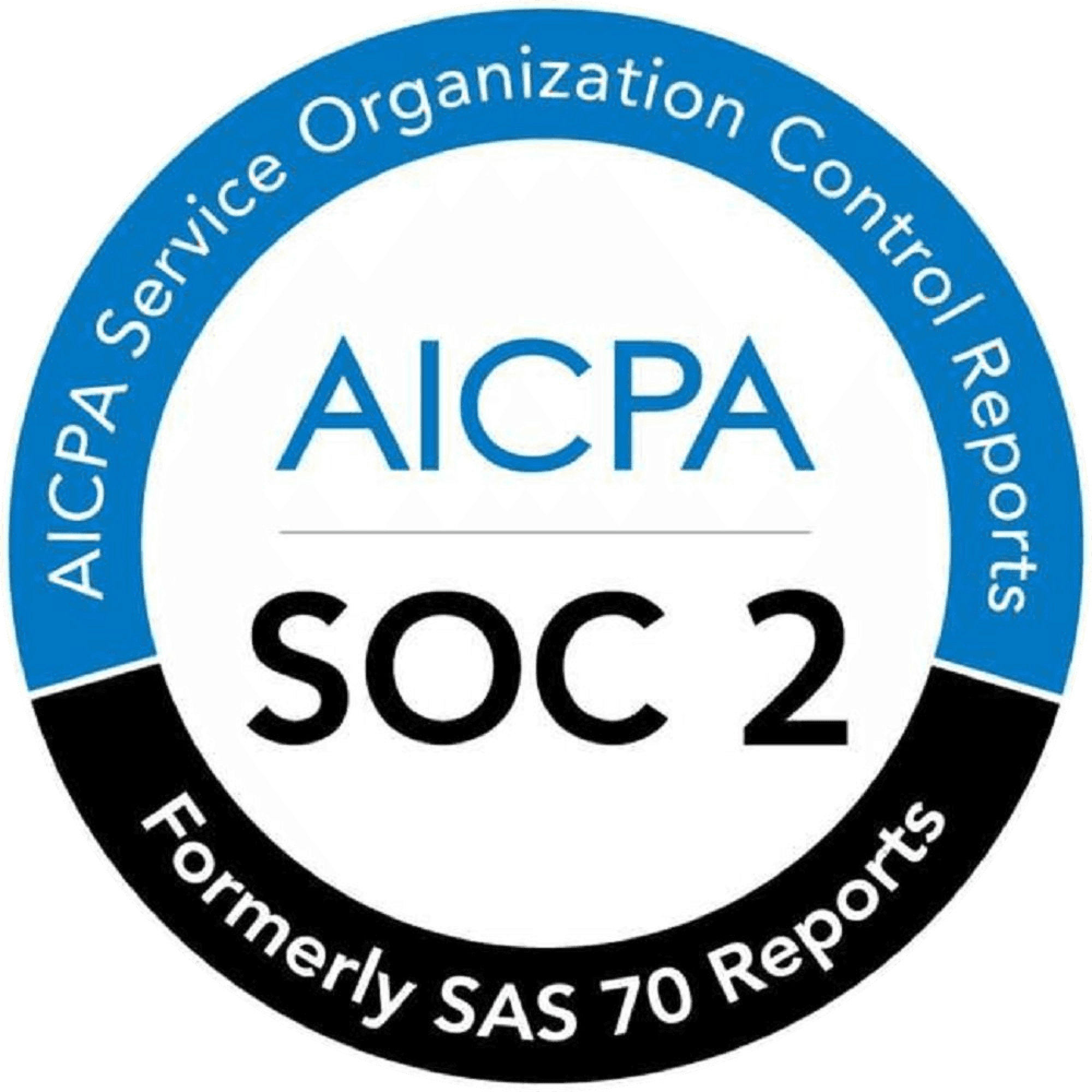Code Quality
Dec 26, 2025
We Tested 11 SonarQube Alternatives, See What Works in 2026

Sonali Sood
Founding GTM, CodeAnt AI
Picking the right code analysis tool is trickier than it looks. SonarQube alternatives keep popping up because, honestly, one size doesn't fit all when it comes to code quality tools.
Your team might be small and SonarQube feels like overkill. Or maybe you're dealing with budget constraints and those enterprise features are just too expensive. Some developers find the setup process frustrating, especially when you just want something that works without spending days on configuration.
So here's what we found when looking into different options. Some focus more on security, others are better for specific languages, and a few are just easier to get running.
This article explores the top 11 SonarQube alternatives in 2026, assessing them based on essential factors to help you determine the best option for your organization’s needs.
But, first
Check out how CodeAnt AI, outperforms SonarQube, that traps you in static rules.
Criteria for Selecting SonarQube Alternatives
When evaluating SonarQube alternatives for enterprise environments, focus on these 6 business-critical factors:
Enterprise Integration: Does it integrate with your existing enterprise stack? Consider compatibility with your CI/CD infrastructure, Active Directory, LDAP, and enterprise-grade repositories like GitLab Enterprise or GitHub Enterprise.
Scalability & Performance: Can it handle your organization's codebase size and developer count? Look for tools that won't slow down as your repositories and teams grow.
Compliance & Governance: Does it meet your industry requirements? Many enterprises need SOC 2, GDPR compliance, audit trails, and reporting capabilities for regulatory purposes.
Total Cost of Ownership: What's the real cost beyond licensing? Factor in implementation time, training requirements, infrastructure needs, and ongoing maintenance versus the value delivered.
Vendor Stability & Support: Is this a vendor you can rely on for 3-5 years? Consider the company's funding, enterprise client base, SLA options, and dedicated support channels.
Security & Privacy: Where is your code analyzed? On-premises options, data residency requirements, and security certifications matter for enterprise adoption.
Wait a sec, are you here to skim? Here you go
Top 11 SonarQube Alternatives in 2026
The table below will give you a quick brief on these best 11 SonarQube alternatives for your workflow.
Tool | Best For | Key Features | Platform Support | Pricing | Free Trial |
CodeAnt.ai | Enterprise & DevOps teams | Real-time AI code analysis, auto-fixes, security scanning, DORA metrics, reporting dashboard | GitHub, GitLab, Bitbucket, Azure DevOps | $20/user/month | ✅ 14 days |
Codacy | Small to mid-sized teams | Automated code reviews, duplication detection, test coverage, security scanning, pull request integration | GitHub, GitLab, Bitbucket | Free plan available, $15/month (Pro) | ✅ Free tier |
Snyk | Security-focused teams | Dependency scanning, container security, infrastructure as code, vulnerability monitoring, automated fixes | GitHub, GitLab, Bitbucket, IDEs, CI/CD tools | Free plan limited, $59/user/month (Team) | ✅ Free tier |
DeepSource | Teams wanting automation | Static analysis, automated fixes, security detection, performance optimization, code metrics | GitHub, GitLab, Bitbucket | Free for individuals, $10/user/month (Team) | ✅ Free tier |
Veracode | Enterprise security | SAST, DAST, mobile security, SCA, compliance reporting, policy enforcement | IDEs, CI/CD pipelines, multiple platforms | Custom enterprise pricing | ❌ Contact sales |
Checkmarx | Secure coding training | SAST, IAST, SCA, security training, compliance support, developer education | IDEs, CI/CD, multiple platforms | Custom enterprise pricing | ❌ Contact sales |
Squale | Budget-conscious teams | Code quality analysis, technical debt tracking, maintainability metrics, customizable rules | Development environments | Free (open-source) | ✅ Always free |
CAST Software | Enterprise architecture | Application architecture analysis, software health metrics, risk assessment, executive reporting | Enterprise application portfolios | $7,000 - $420,000/year | ❌ Contact sales |
Kiuwan | Regulated industries | Code quality analysis, security detection, compliance reporting (OWASP, SANS), risk assessment | IDEs, CI/CD pipelines | $599/month (SAST), $1,199/month (SCA) | ✅ Free trial |
Code Intelligence | Advanced testing teams | AI-powered fuzz testing, real-time vulnerability discovery, automated test generation, coverage-guided testing | CI/CD systems | Custom pricing | ❌ Contact sales |
Codecov | Test coverage focus | Detailed coverage reports, coverage trends, pull request integration, team insights, multi-language support | GitHub, GitLab, Bitbucket, CI tools | Free plan available, $10/user/month | ✅ Free tier |
If you have skimmed and are still reading, thank you. Now, let’s take a deep dive into each of these SonarQube alternatives.
Starting first with:
1. CodeAnt.ai
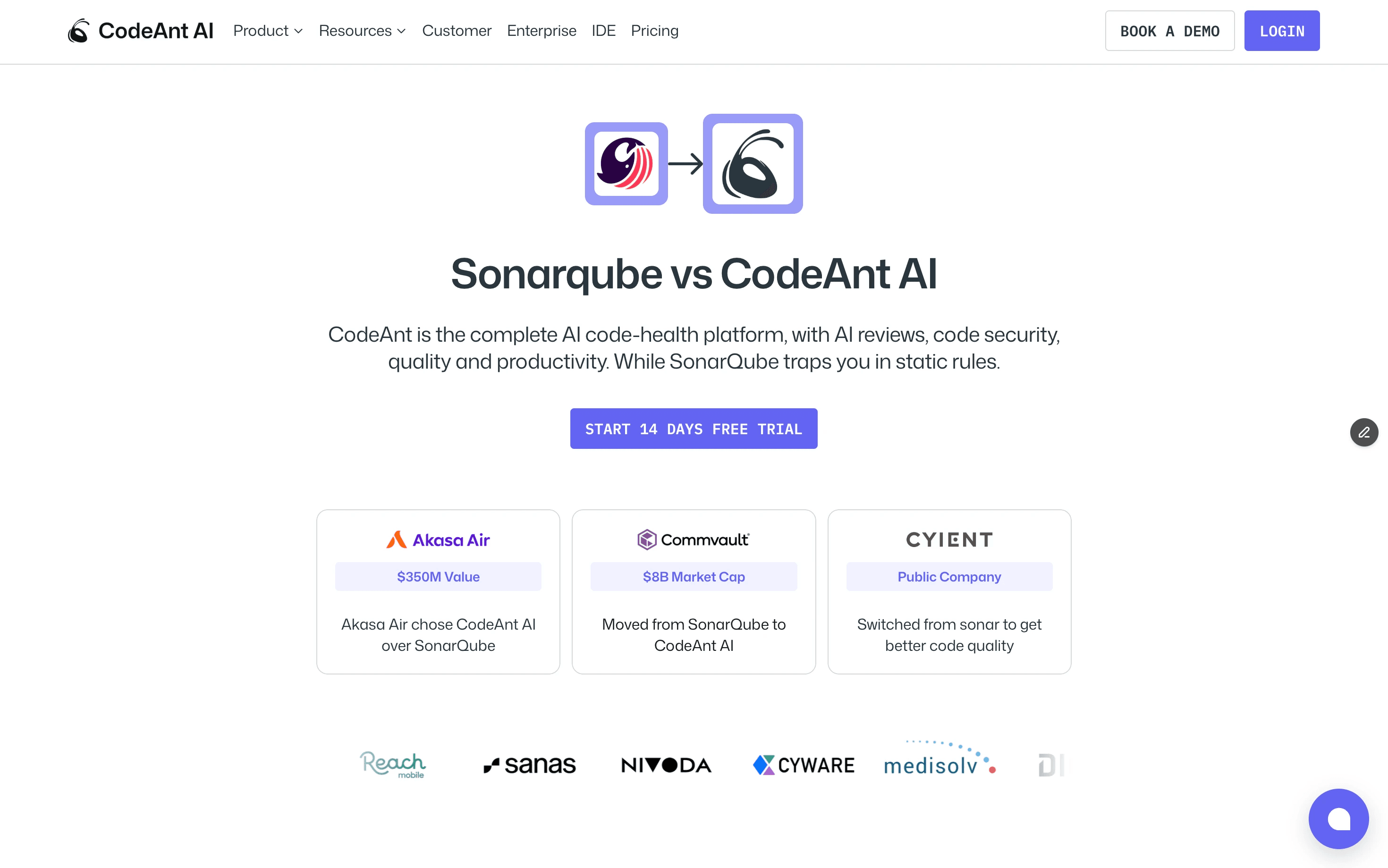
If you're hitting limits with SonarQube’s rigid workflows, complex setup, or costly enterprise-only features, CodeAnt.ai might be your best alternative.
CodeAnt AI is built for fast-moving dev teams who want real-time code insights, AI-generated PR reviews, and actionable security feedback, without the heavy DevSecOps lift. A small table to simplify this:
Key Features
Real-Time Code Analysis: Scans your code as you write it, catching issues before they become problems. Works across all your repositories and doesn't slow down your workflow.
Smart Suggestions: Uses AI to understand your coding patterns and gives you fixes that actually make sense for your project, not generic advice.
Simple Reporting: Gets straight to the point with clear reports that everyone can understand, from junior developers to project managers.
IDE Integration: Plugs right into VS Code and JetBrains without any complicated setup. Just install the extension and you're good to go.
Auto-Fix Capabilities: Doesn't just tell you what's wrong - it can actually fix common issues automatically, saving you time on routine cleanup.
Integrations
CodeAnt.ai works well with:
Pricing
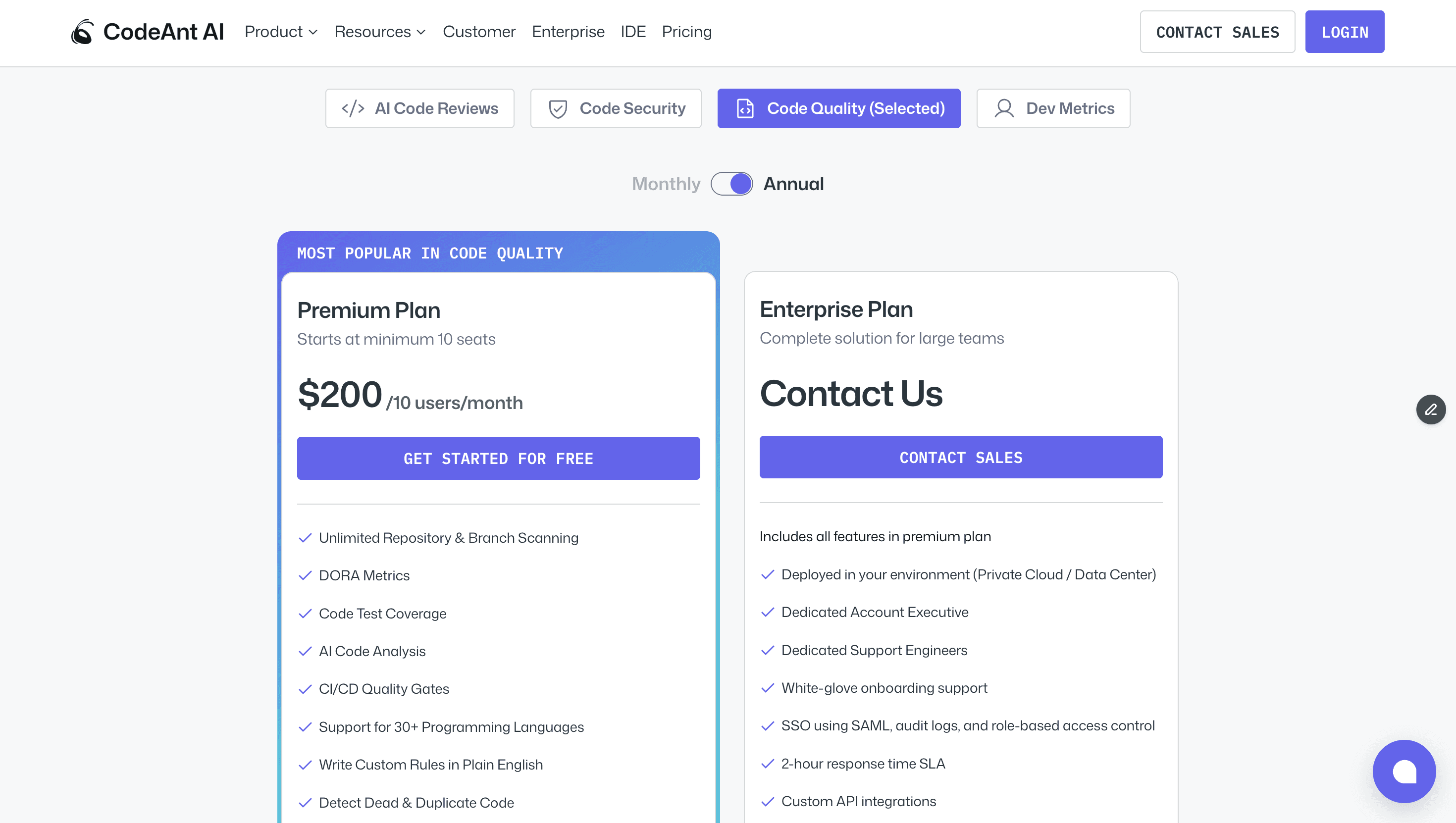
Starts at $20 per user per month with a free trial. No surprise costs or hidden enterprise features.
Codacy
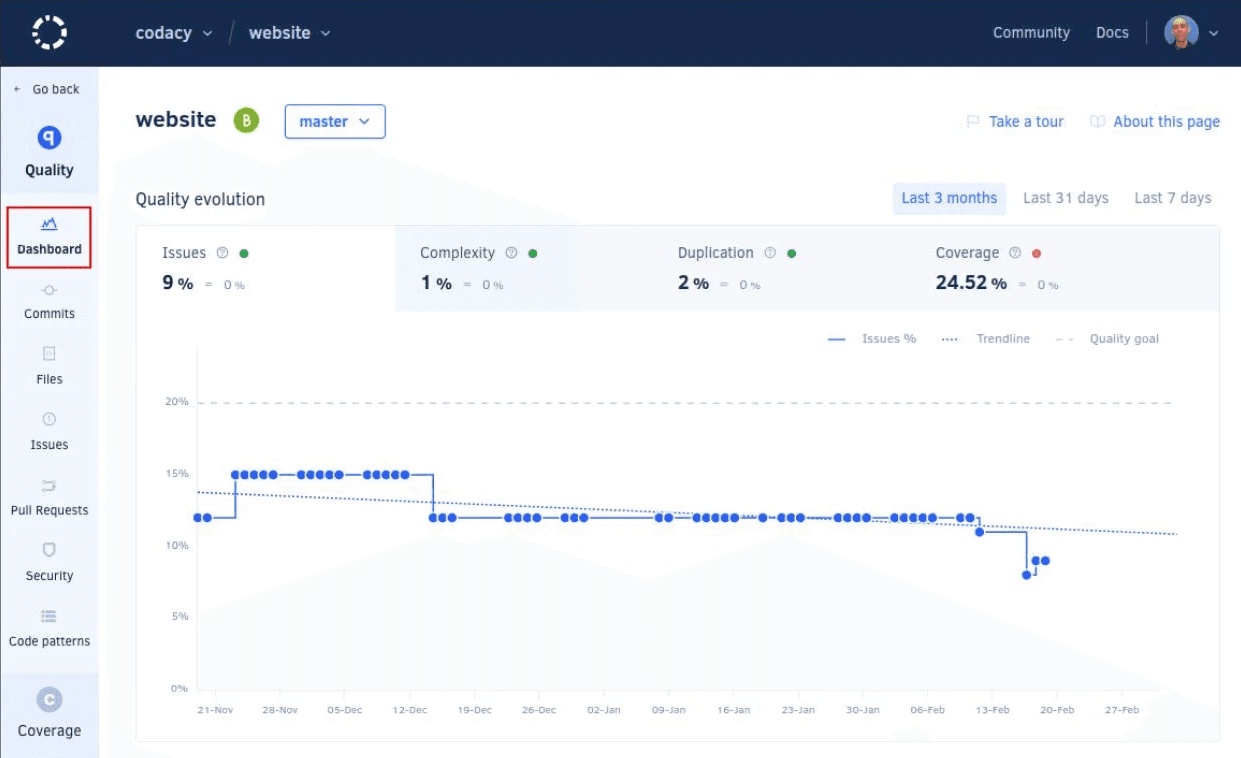
Codacy is one of those tools that just works without making you jump through hoops. It covers a lot of programming languages and does the heavy lifting on code analysis so you don't have to.
Key Features
Automated Code Reviews: Checks your code automatically and catches common issues before they become headaches.
Duplication Detection: Finds repeated code blocks that you might want to refactor.
Test Coverage Analysis: Shows you exactly what parts of your code are covered by tests and what isn't.
Security Scanning: Looks for potential vulnerabilities in your codebase.
Code Complexity Metrics: Tells you when your functions are getting too complicated.
Limitations
Analysis Limits: Places restrictions on code analysis for large repositories, which can impact the calculation of metrics.
False Positives: Users report getting flagged for issues that aren't actually problems, requiring manual review time.
Limited Language Support: While it supports many languages, some newer frameworks and languages aren't fully covered.
Integration
Plays nice with GitHub and Bitbucket. The pull request feedback is actually useful instead of just being noise.
Pricing
Free plan available, paid plans start at $15 per month. Pretty reasonable for what you get.
Snyk
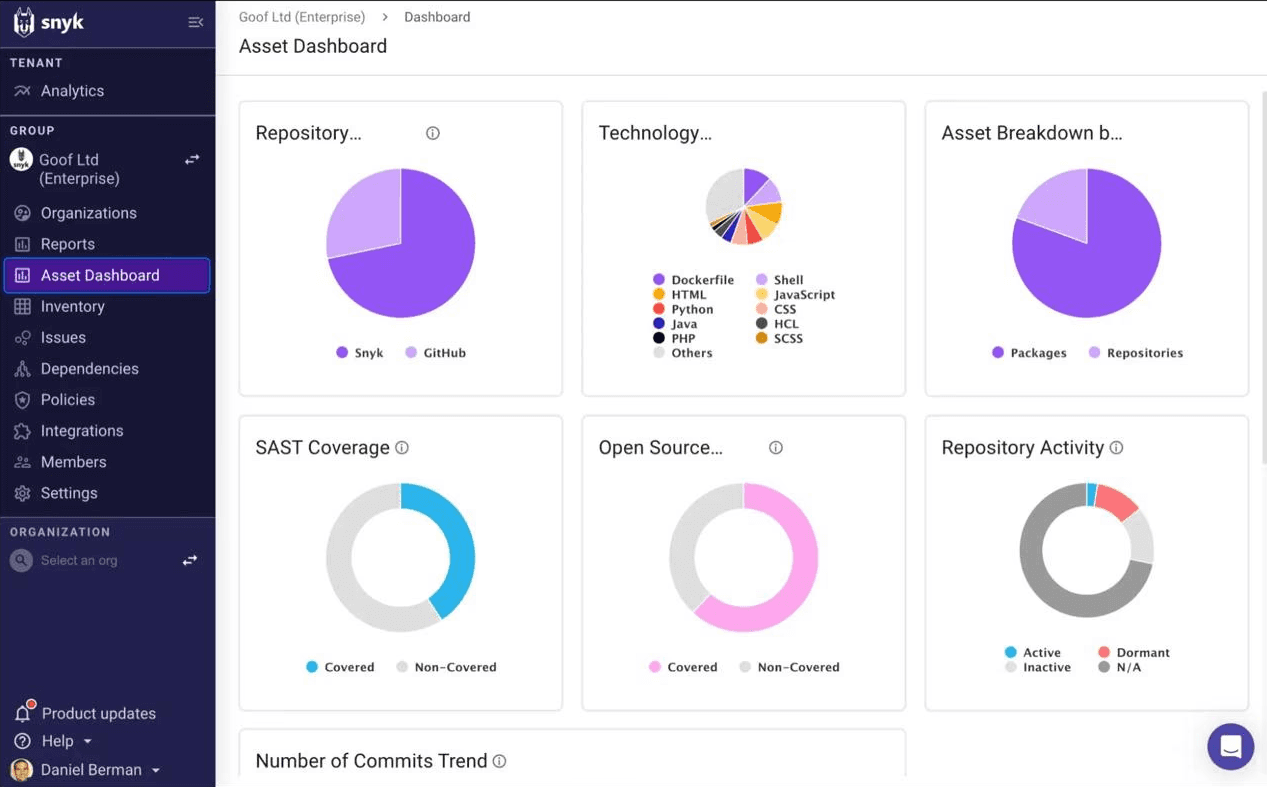
Snyk is all about security. If you're worried about vulnerabilities in your dependencies or containers, this is the tool that specializes in exactly that problem.
Key Features
Dependency Scanning: Continuously monitors your open-source libraries for known security issues.
Container Security: Scans your Docker images for vulnerabilities before they go to production.
Infrastructure as Code Security: Checks your Terraform and Kubernetes configs for security problems.
Real-Time Monitoring: Keeps watching your dependencies even after deployment.
Automated Fixes: Can automatically create pull requests to fix vulnerable dependencies.
Limitations
False Positives: Users frequently encounter excessive false positives in scanning, leading to frustration and wasted time.
Expensive Pricing: Gets very expensive for medium to large companies, though there's a free tier for smaller organizations.
Language Support Issues: Has limitations with Gradle, NPM, and Xcode, and struggles with some newer language versions.
Integration
Works with most IDEs, CI/CD tools, and container registries. Fits into your existing workflow without requiring major changes.
Pricing
Free plan with limited features, premium plans start at $59 per month per developer.
DeepSource

DeepSource focuses on fixing issues automatically instead of just pointing them out. It's designed to reduce the time you spend on manual code reviews.
Key Features
Static Code Analysis: Scans code across multiple programming languages for quality issues.
Automated Fixes: Actually fixes common problems automatically instead of just flagging them.
Security Vulnerability Detection: Finds potential security issues in your code.
Performance Optimization: Suggests improvements that can make your code run faster.
Code Metrics: Tracks technical debt and code health over time.
Limitations
False Positives: Occasionally generates false positives that require additional time and effort to manually review and verify.
Free Plan Restrictions: The free plan doesn't include automated analysis - you have to manually review all pull requests and issues.
Information Overload: Can generate a lot of feedback that some developers find overwhelming and time-consuming to prioritize.
Integration
Connects easily with GitHub, GitLab, and Bitbucket. Works well in CI/CD pipelines.
Pricing
Free for individual developers, paid plans start at $10 per developer per month.
Veracode

Veracode is the enterprise security tool. If you're dealing with compliance requirements or need comprehensive security testing, this is what big companies use.
Key Features
Static Application Security Testing (SAST): Deep security analysis of your source code.
Dynamic Application Security Testing (DAST): Tests your running applications for vulnerabilities.
Mobile Application Security: Specialized testing for mobile apps.
Software Composition Analysis: Checks third-party components for security issues.
Compliance Reporting: Helps meet regulatory requirements.
Limitations
Slow Scanning: Long scanning times, especially for large applications, which can delay development processes.
Outdated User Interface: The UI is slow and feels dated compared to modern interfaces - clicks can take 2-3 seconds to respond.
Limited Language Support: Behind on timely support for newer language and framework versions.
Integration
Integrates with IDEs, version control systems, and CI/CD pipelines. Built for enterprise development workflows.
Pricing
Custom pricing based on your needs. Expect enterprise-level costs.
Checkmarx

Checkmarx is another security-focused tool, but it's more developer-friendly than some enterprise solutions. Good balance of security features and usability.
Key Features
Static Application Security Testing: Finds security vulnerabilities in your code.
Interactive Application Security Testing: Tests applications while they're running.
Software Composition Analysis: Scans open-source components for vulnerabilities.
Security Training: Helps developers learn secure coding practices.
Compliance Support: Meets various industry security standards.
Limitations
Windows Only: Being Windows-only is a significant hindrance for teams using other operating systems.
High Memory Requirements: Can require significant memory resources (32GB+ for large projects) and may stop unexpectedly due to memory issues.
Performance Problems: Slow scans and high memory usage are ongoing concerns for users.
Integration
Strong integration throughout the development lifecycle with real-time IDE feedback.
Pricing
Enterprise-focused, pricing available on request.
Squale

Squale is the open-source option. If you don't want to pay for code quality tools but still want something that works, this might be what you're looking for.
Key Features
Code Quality Analysis: Basic but effective analysis of code quality issues.
Technical Debt Tracking: Helps you understand and manage technical debt.
Maintainability Metrics: Shows you how easy your code is to maintain and modify.
Quality Guidelines: Provides suggestions for improving code quality.
Customizable Rules: You can adjust the analysis to fit your team's standards.
Limitations
Limited Features: As an open-source tool, it has fewer advanced features compared to commercial alternatives.
Smaller Community: Less community support and fewer resources compared to more popular tools.
Documentation: May have limited documentation and tutorial resources for new users.
Integration
Works with development environments and provides quality improvement guidance.
Pricing
Completely free since it's open-source.
CAST Software

CAST is the big picture tool. Instead of just looking at individual code issues, it analyzes your entire application architecture and gives you high-level insights.
Key Features
Application Architecture Analysis: Understands how your entire system fits together.
Software Health Metrics: Provides overall health scores for your applications.
Risk Assessment: Identifies architectural risks that could cause problems.
Technology Stack Analysis: Analyzes all the technologies in your application portfolio.
Executive Reporting: Creates reports that management can actually understand.
Limitations
Extremely High Cost: Pricing ranges from $7,000 to $420,000 annually, making it accessible only to large enterprises.
Complex Setup: Requires significant setup and configuration time compared to simpler tools.
Learning Curve: Teams need extensive training to effectively use and interpret the comprehensive analysis results.
Overkill for Small Teams: The enterprise focus makes it unsuitable for small to medium-sized development teams.
Limited Real-Time Feedback: Focuses more on strategic analysis than day-to-day development feedback.
Integration
Focuses on comprehensive application analysis rather than day-to-day development integration.
Pricing
Enterprise pricing ranging from $7,000 to $420,000 annually depending on your application portfolio.
Kiuwan

Kiuwan combines code quality and security with a focus on compliance. Good choice if you're in a regulated industry that needs to meet specific standards.
Key Features
Code Quality Analysis: Standard code quality checks and metrics.
Security Vulnerability Detection: Finds security issues in your code.
Compliance Reporting: Helps meet standards like OWASP and SANS.
Risk Assessment: Prioritizes issues based on actual risk to your application.
Multi-Language Support: Works with a wide variety of programming languages.
Limitations
High Pricing: Starting at $599 for SAST and $1,199 for SCA scans can be expensive for smaller teams.
Enterprise Focus: Primarily designed for enterprise users, which may be overkill for smaller development teams.
Limited Trial: While there's a free trial, the full feature set requires paid subscriptions.
Integration
Strong integration with DevOps pipelines and development tools for security scanning.
Pricing
Starts at $599 for SAST scans and $1,199 for SCA scans. Free trial available.
Code Intelligence

Code Intelligence does something different - fuzz testing. Instead of just looking at your code statically, it actually runs tests with random inputs to find bugs and vulnerabilities.
Key Features
AI-Powered Fuzz Testing: Automatically generates test inputs to find vulnerabilities.
Real-Time Vulnerability Discovery: Finds issues while your application is running.
Automated Test Generation: Creates tests that you might not think to write yourself.
Integration with CI/CD: Runs fuzz tests as part of your build process.
Coverage-Guided Testing: Focuses testing on parts of code that haven't been tested much.
Limitations
Specialized Use Case: Only does fuzz testing, so you'll need other tools for general code quality analysis.
Learning Curve: Fuzz testing concepts may be unfamiliar to developers used to traditional testing approaches.
Custom Pricing: Pricing is only available upon request, making it hard to budget without sales conversations.
Limited Coverage: Focuses on specific types of vulnerabilities that can be found through input fuzzing.
Integration
Works with various CI/CD systems to run fuzz testing automatically.
Pricing
Custom pricing, available for both small teams and enterprises.
Codecov

Codecov is all about test coverage. If you want to know exactly how much of your code is covered by tests and track that over time, this is the tool for the job.
Key Features
Detailed Test Coverage Reports: Shows exactly which lines of code are covered by tests.
Coverage Trends: Tracks how your test coverage changes over time.
Pull Request Integration: Shows coverage changes right in your pull requests.
Team Insights: Helps teams understand testing patterns and gaps.
Multiple Language Support: Works with tests in various programming languages.
Limitations
Processing Issues: Reports sometimes get stuck in "Processing" state, requiring reruns or taking up to 15+ minutes to complete.
Upload Limits: Repositories can hit limits on the number of uploads, causing coverage checks to fail.
Inaccurate Results: Occasionally provides very inaccurate coverage statistics, showing dramatic changes when none occurred.
Integration
Seamless integration with most CI tools and code hosting platforms.
Pricing
Free plan available, premium options start at $10 per month per user.
Choose the Right SonarQube Alternative for Your Team
Look, you wouldn't be reading this if everything was working perfectly with your current setup. Maybe you're tired of slow scans, frustrated with complicated configurations, or just need something that actually fits your budget.
So the thing is switching doesn't have to be a massive project. Most of these tools can be up and running in under an hour. Pick one that solves your biggest pain point first. If you need faster feedback, try Codeant.ai. If security is keeping you up at night, go with Snyk. If you want something that just works without the headache, Codeant.ai might be exactly what you need.
The best tool is the one your team will actually use. Don't overthink it. Start with a free trial, connect it to one project, and see how it feels. You can always add more repositories later or switch to something else if it doesn't click.
Ready to see what better code quality looks like? Try Codeant.ai free for 7 days - no credit card required, no complicated setup. Just connect your GitHub repo and start getting better code reviews in minutes.
Also check out: https://www.codeant.ai/blogs/free-open-source-sonarqube-alternatives







